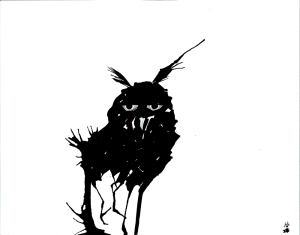
Note: I published a lengthy review of the book on The Millions, which you can find here.
Early on in the MFA program, I decided my goal was to write a war memoir. It was actually was less evident to than you might guess — my original plan was an essay collection, but evidently those are difficult to get published as a first time author — but it also made a lot of sense. Technically, the very first thing I ever published was, after all, technically memoir. And by “memoir,” I mean it was an examination of something from my personal history.
The next logical step was to read as much war memoir as possible, which was how I became familiar with Brian Castner. An Air Force EOD veteran of Iraq, he wrote a memoir called The Long Walk (which has since been adapted as an opera) that stuck with me because of its fragmentary nature. It was willfully disorienting, the fragmentation a clear representation of a mind at search for a thread while weaving in and out of traumatic experiences. It reminded me, and quite a few others, of Michael Herr’s Dispatches.
Castner’s second book, All the Ways We Kill and Die: An Elegy for a Fallen Comrade and the Hunt for His Killer, is much different. Brian is also a freelance journalist with a fistful of longform/narrative nonfiction pieces, and the book is much more in the vein of reportage. By design, he’s told me, although I argued in my review that he as narrator is central enough to earn a “memoir” as a label as well.
In an MFA program like mine, you read a lot of nonfiction that weaves reportage and essay. Leslie Jameson, Eula Biss, John McPhee: these are just a tiny few who build narratives from both in-depth research and thoughtful reflection. In fact, modern creative nonfiction owes much to The New Journalism that erupted in the 60s from writers like Didion, Wolfe, and Gay. But once you narrow the lens to something like the idea of reading things written by veterans, well the list gets short. Really short. So while Castner’s second book was certainly beautifully written, it was also helpful and inspiring to see a fellow vet out there working the creative side and the journalism side.
Memoir, of course, requires a certain amount of research, even if it only consists of reaching into the depths of our memories to recall the who and where. But there’s something to the idea of dipping in and out, as the narrator in All the Ways does. One minute, we’re in his head, at his friend’s funeral. The next, we’re inside the head of a drone pilot. It taught me the value of the reporter’s skill of information gathering – of noticing in that particular habit of picking up stones to see what lies underneath. It’s a skill foreign to me that, thankfully, Castner nails in the book.
Note: If you’re reading this in Anchorage or Juneau, you have the opportunity to interact with Brian Castner at one of several events next week. On Friday, 10 Mar at the Juneau Public Library, he will give a talk before leading a writing workshop the next day, again in Juneau. On Sunday, 12 Mar, I will moderate a discussion between Brian and and Alaska author Don Rearden at 49th State Brewery at 7pm. I hope to see you there.

